A Thousand Protesters in Prison; Socialists Won’t “Repent.”
Uneasy Days on the Battlefront.
Special to The Great War Project.
(13 March) The anti-war movement in the United States remains as intense as ever.
That’s the view of historian Adam Hochschild as he surveys the battlefields these days a century ago.
“More than a thousand conscientious objectors were still behind bars in the United States,” Hochschild reports, “and attendance at peace rallies was on the rise.”
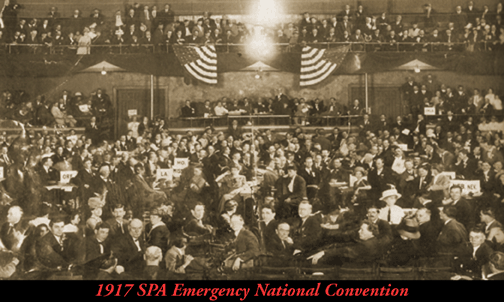
American Socialists in St. Louis rally against the war.
“American radicals scoffed at President Woodrow Wilson’s high-flown rhetoric about democracy and self-determination,” Hochschild writes, “insisting that the real reason the U.S. was fighting for an Allied victory was to ensure that massive American war loans to Britain and France would be paid back.”
“Although American war resisters were never as numerous as their British counterparts, more than 500 draftees refused any sort of alternative service and went to prison.”
Witness the case of the American Socialist Party leader, Eugene Debs.
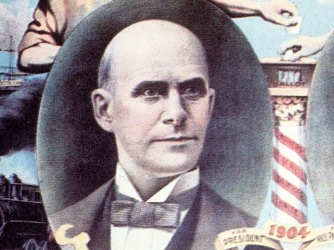
Socialist Party leader Eugene Debs
Debs left a sickbed in 1918 to give a series of anti-war speeches, for which he too was thrown behind bars. “The judge told him he might get a lesser sentence if he repented.”
“Repent?” asked Debs. “Repent for standing like a man?”
In the spring of 1918, Debs is given a ten-year sentence for violating the recently sharpened Espionage Act, according to historian Michael Kazin. Debs speaks at a picnic for Socialist party members in Ohio.
“On that occasion,” reports Kazin, “Debs has not railed against conscription nor specifically condemned the war Americans were currently fighting.”
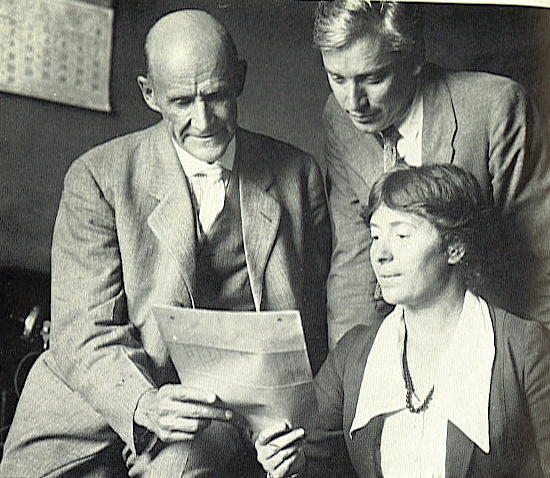
Debs and supporters, 1918.
Instead Kazin notes, “he rails against the fact the working class has never yet had a voice in declaring war. But were taught it was their patriotic duty to have themselves slaughtered at command.”
Kazin concludes, “that was evidently too much for the Justice Department.”
Later Debs would remain in prison even though he eventually ran for president on the Socialist ticket.
On the battlefield, Hochschild reports, “in early March 1918, General Sir Douglas Haig, the commander of British forces, gets an intelligence report: an offensive on a big scale will take place during the current month.”
That intelligence proves to be true.
“These were uneasy days,” observes historian Gary Mead, “with both British and French commanders just one step away from panic as the long-expected German explosion seemed to be unstoppable.”
Haig describes the situation for the British as…
“their backs are against the wall…fighting for survival along a battle front of 150 miles.”
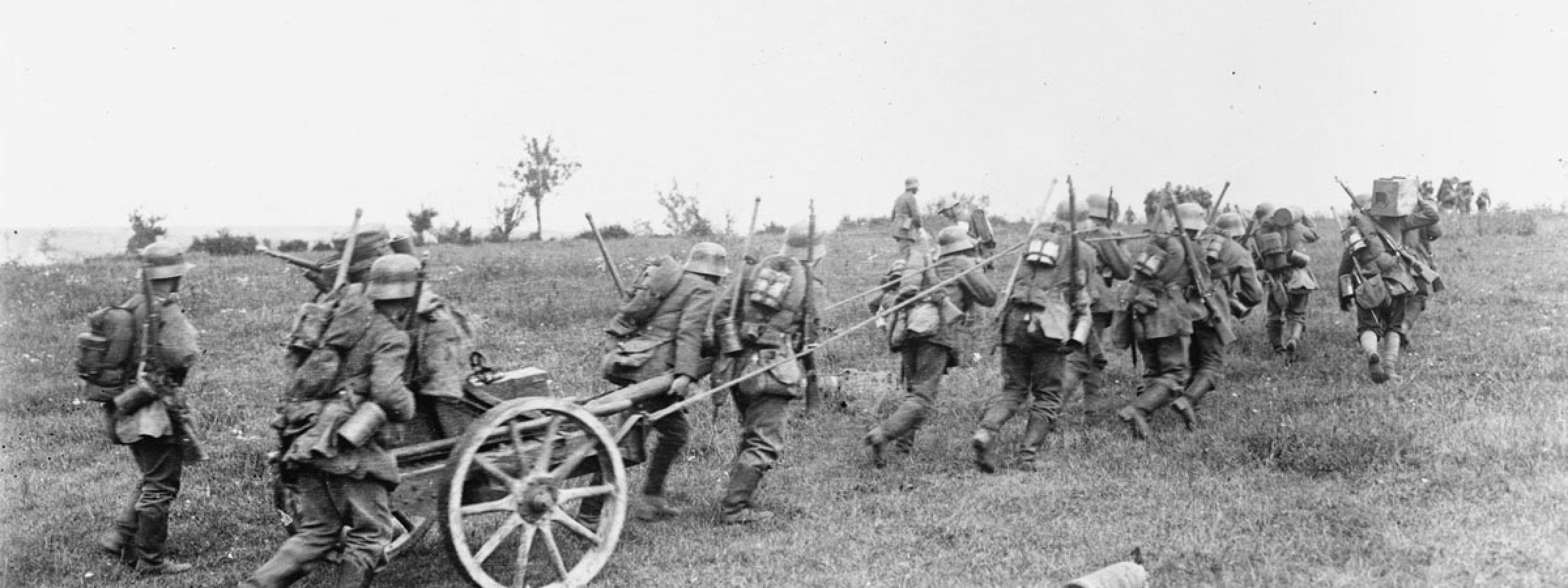
German spring offensive, 1918.
“When the German army launched the first of five powerful offensives on March 21st a century ago,” writes one historian, “only 300,000 American troops had arrived in France.”
And they were still being assigned to “quiet sectors” where they can continue their training.
As for the anti-war activists in the United States, many shift their views and embrace President Woodrow Wilson’s Fourteen Points. But some dig in their heels, making resistance stronger.
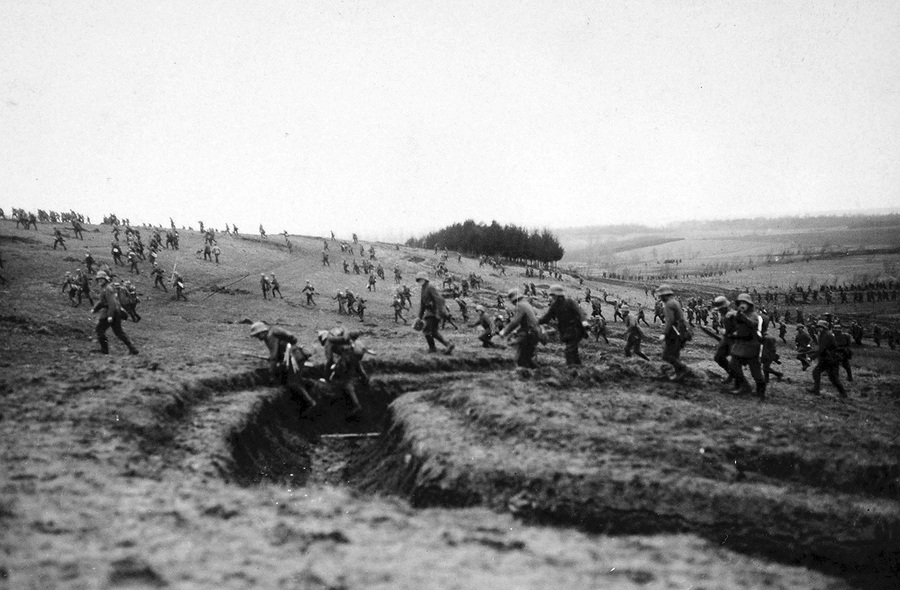
German spring offensive, 1918.
Writes historian Michael Kazin, “not every prominent radical softened his or her opinion of Wilson. Socialist Eugene Debs remained a steadfast foe of American belligerency.”
And the leader of the Wobblies, Big Bill Haywood, and more than a hundred of his IWW comrades, remained confined to a Chicago jail for their opposition to American participation in the war.
